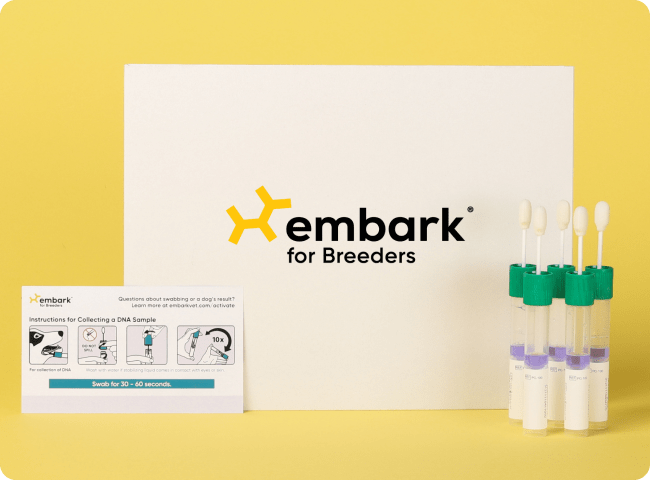Boston Terrier
Illustration courtesy of the Swedish Kennel Club
Boston Terriers are lively, intelligent and friendly. Although a small dog, they are strong and sturdy. Owners of this breed find them to be As the breed's name implies, the Boston Terrier originated in the city of Boston in the late 19th century. They're sometimes referred to be their nickname of the "American gentleman" because of their tuxedo-like coat.
Fun Fact
The Boston Terrier carries the nickname “The American Gentleman”, due to their characteristically gentle nature and dapper looks.
-
Boston Terriers at a glance
With irresistibly cute faces and spunky personalities, the Boston Terrier is an enjoyable and lively dog breed. The Boston Terrier is a compactly built, short-backed, clean-cut dog that's considered relatively easy to train and well-adapted to home living. They are great family dogs that enjoy socializing with people and kids, while also being gentle and quiet. They are well-mannered and obedient. However, they can be territorial of their owners, which can spark aggressive behavior towards other pets and strangers. If you are considering adopting a Boston Terrier, have a dog that's part Boston Terrier, or just want to know more about this breed, we’ve compiled all the information you might need to make informed decisions regarding their care. We’ve included details about this breed’s physical characteristics, activity needs, grooming tips, and nutrition. You'll also find information about the genetic health risks Embark can test for that could impact this breed. -
About Boston Terriers
The Boston Terrier was originally bred as a fighting dog in the late 19th century but is now considered an affectionate family pet. The exact account of how this breed came to be is unknown. However, it is believed a Bostonian imported a bulldog/English terrier cross named Judge from England and from him, developed the Boston Terrier. Boston Terriers were once known as "Round Heads," but in 1891 they were renamed Boston Terriers to reflect the breed's birthplace. Two years later, the AKC officially recognized the Boston Terrier. These pups were one of the first American breeds to be recognized by the AKC. Today, the Boston Terrier ranks as the 12th most popular breed. These dogs can really hold their own in the highly competitive world of canine sports. Their innate desire to please people is a big part of the breed's ability to quickly learn and excel in a variety of performance events. -
Physical characteristics of this breed
According to the American Kennel Club (AKC), these dogs are recognized by their tight tuxedo jacket, sporty but compact body, the friendly glow in their big, round eyes, and impeccable manners. Due to their short noses and inability to both cool and heat air, Boston Terriers struggle to adapt to the outside temperature and should generally be kept indoors. Their short noses also lead to plenty of snorting, drooling, and snoring. The Boston Terrier is prone to flatulence so be prepared for some unpleasant smells around these big-eared canines. If you own this kind of dog, you will most likely find a circle of dark hair on top of your dog's head; this is known as a “Haggerty dot” or a spot or star, depending on who you ask. Dogs with this special marking are descendants of one of the original lines of Boston Terriers owned by the Haggerty family in the early 1900s. -
Nutrition for your Boston Terrier
A balanced diet is vital to your pup’s growth and health. According to the AKC, the Boston Terrier should do well on a diet of high-quality dog food, whether commercially manufactured or home-prepared with your veterinarian’s supervision and approval. Any diet should be appropriate to the dog’s age. Some dogs are prone to becoming overweight, so watch their calorie consumption and weight level. Treats can be an important aid in training, but giving too many can cause obesity. If you’re unsure about what to feed your dog, talk to your veterinarian about a meal plan. -
Health and aging for this breed
The Boston Terrier has a lifespan of about 13-15 years. According to VetStreet.com, your Boston Terrier is considered a senior pup after turning 8. Boston Terriers are among the flat-faced, or brachycephalic, dog breeds, and that flat face can bring health problems, some minor such as snoring and snuffling, while some issues are more major. Speak with your vet about proper care for your pup's snout. -
An Embark Dog DNA Test looks at the following health conditions in Boston Terriers:
-
Want to learn more about your dog?
Do you own a Boston Terrier or do you think your dog might be part Boston Terrier? Learn more about you pup with Embark’s Dog DNA Tests, the most accurate on the market. -
Health Conditions
Learn about your dog's genetic breed ancestry with Embark
Dog owners
Breed identification, health and trait insights, personalized care recommendations, and the world’s first canine relative finder—all in one leading dog DNA test.
Learn about the report for dog ownersShop the test
Breeding programs
Embark’s test for breeding programs is one comprehensive DNA test designed with your needs in mind.
Learn about the report for breedersShop the test


